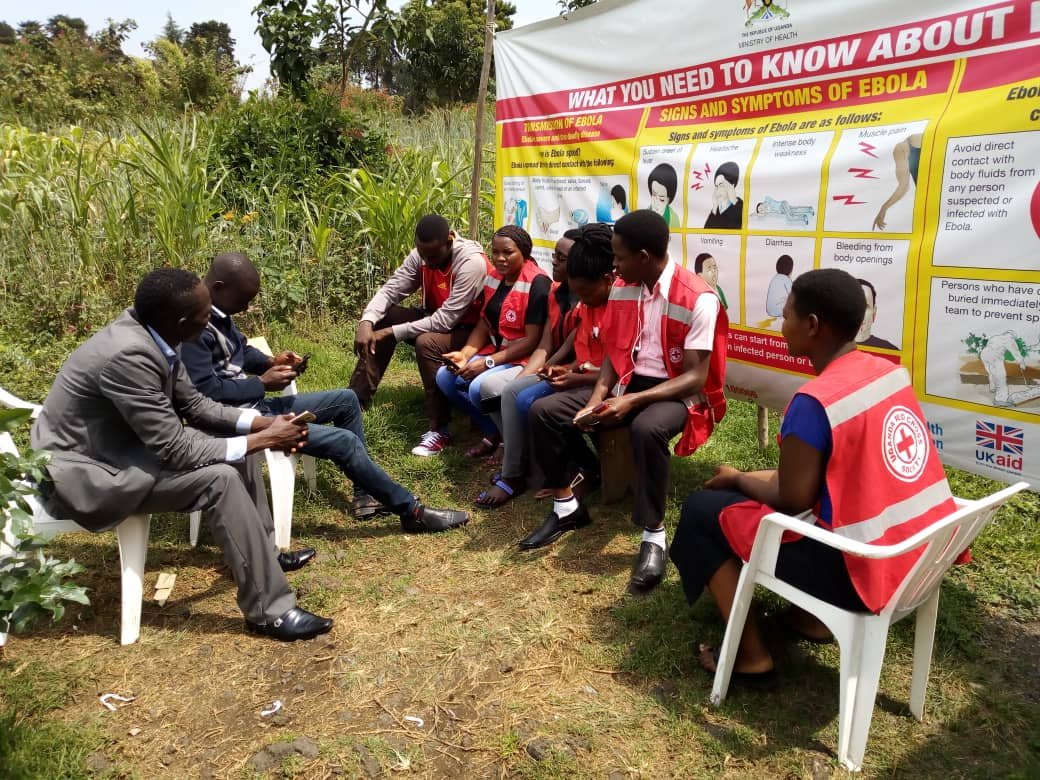Digital Information for Ebola Preparedness: Point of Entry Training and Data Collection in Uganda

With support from the International Organization for Migration (IOM), HOT is developing a robust digital information system for tracking the use and availability of Ebola-related preparedness at Points of Entry between Uganda and the Democratic Republic of the Congo.
In August 2018, the Ministry of Health of the Democratic Republic of the Congo (DRC) declared a new outbreak of the Ebola Virus Disease (EVD) in the North Kivu Province. One year later, according to a situation report published by the World Health Organization on August 8, 2019, the outbreak continues to spread in North Kivu and Ituri provinces of DRC, as does the complexity around coordination on the ground. Community mistrust, coupled with intensifying unrest, has further derailed the progress made by the Ministry of Health and its partners in the DRC to contain the virus and protect the health and well-being of local communities.
In light of this Ebola outbreak in the DRC, Uganda activated ‘Ebola Preparedness’ mode in September 2018. With support from a network of partners, the Ministry of Health (MOH) in Uganda developed an Ebola Preparedness Framework across the 22 districts bordering the DRC. This included enhancement of health screening and check-ups, hand-washing, and use of sanitizers at all Points of Entry (POEs). Understanding the vital role of POEs in monitoring the symptoms and overall health of people moving across the DRC-Uganda border, it became critical to know where all formal and informal border crossings were, and track the availability and needs of Ebola-related stock at each of these locations.
With funding from the International Organization for Migration (IOM) in Uganda, HOT is supporting Ebola preparedness efforts in four districts in western Uganda bordering the DRC. In June 2019, HOT developed a more robust digital information system to be used at POEs to track the use and availability of EVD-related stock at these locations. OpenDataKit (ODK) Collect and Kobo Server are major pillars of the system and will be used by POE focal persons on a regular basis to assess EVD-related stock availability; tools and technology that are made compatible with existing data systems in the National Response ensure its use and sustainability once the program is complete. HOT also mapped both formal and informal POEs in the districts of Kisoro, Kanungu, Rubirizi and Rukungiri in southwestern Uganda. Such information being uploaded to a central server managed by IOM on a weekly and monthly basis and will enable MOH and its partners to respond to needs and gaps relating to EVD-stock more quickly and systematically.
Given the importance of knowing what infrastructure and services are available in a given area during an outbreak, HOT trained community members to map all health facilities, schools, water points, market places and mobile money shops in the surrounding villages in the four districts bordering the DRC. Because district teams conducting contact tracing when a suspected case arises need accurate spatial data on the existing services and infrastructure in a given area, this community-generated data becomes an integral part of the Ebola response as it is used by response actors to guide their interventions on the ground. All infrastructure data will be uploaded to OSM to provide direct and non-direct response actors with more granular information on the existing services in these areas for additional planning and service delivery.

